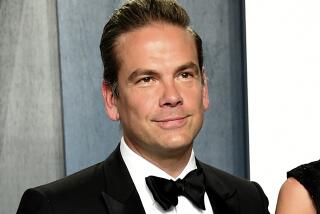NYSE Approves Reforms, Elects New Directors
- Share via
NEW YORK — New York Stock Exchange members, in a historic vote precipitated by the flap over their former leader’s outsized pay, approved a package of reforms Tuesday and elected a new slate of eight directors without business or regulatory ties to the exchange.
The reforms, subject to final approval by the Securities and Exchange Commission, would abolish the 27-member NYSE board long headed by Richard Grasso. He was ousted as chairman and chief executive Sept. 17 after an intense public outcry greeted revelations that he had taken $188-million in deferred salary, retirement pay and other compensation.
In the aftermath, the board was criticized for conflicts of interest, an atmosphere of “clubbiness” and a tradition of extreme secrecy, especially concerning the pay of Grasso and other top NYSE executives.
Tuesday’s reforms, which took the form of amendments to the constitution of the 211-year-old exchange, were meant to address those and other complaints. For example, the NYSE from now on would disclose the salaries of all top executives in an annual report.
Among other things, the pay of Big Board officials would be set by the new, independent board, which also would oversee regulation of the NYSE’s troubled stock-trading operations. Only two of the new board members are holdovers: former U.S. Secretary of State Madeleine K. Albright and pension-fund chief Herbert M. Allison Jr.
The reforms don’t go far enough to suit such critics as the California Public Employees’ Retirement System and a group of state treasurers, including California’s Phil Angelides. Some of them favor having directors nominated and approved by an outside body, such as the SEC, rather than by the Big Board’s member-owners. All have called for greater board representation for the investing public.
The NYSE announced the approval of the reform package Tuesday night after a membership meeting that followed a two-week voting period for the 1,366 holders of trading seats on the Big Board.
A final tally was to be released today after certification by an outside auditor.
The member-owners, many of whom are retired stock-market professionals who lease their NYSE seats to active traders, voted in person, by telephone, by mail and over the Internet. The vote was expected to be overwhelmingly in favor of the reform plan, according to a number of seat holders interviewed in recent days.
“If we did nothing and just stuck our head in the sand, it wouldn’t have solved anything,” said Lawrence J. Guli, a retired NYSE floor broker and seat owner who lives in Rancho Mirage.
It would be up to the new board to name a chairman and chief executive to replace interim Chairman John S. Reed, who spearheaded the reforms and chose the new directors. Reed has made it clear he wants to “re-retire” as soon as a successor is chosen.
The new directors would decide whether to split the exchange’s top job into two positions or to continue with one person holding both, as Grasso did. Guli said he has long pushed for separating the jobs, a view shared by most of the NYSE’s outside critics.
The directors also would appoint a Board of Executives to advise them on market-related matters such as stock listings and exchange technology. The advisory panel would include representatives of such NYSE constituencies as floor traders, brokerage firms, pension funds and other investors, as well as companies whose stock is listed on the exchange.
Reed, former co-chairman of Citigroup Inc., is set to explain the reforms Thursday in Washington during a hearing of the Senate Banking Committee. SEC Chairman William H. Donaldson also is scheduled testify.
CalPERS and other critics are expected to press the SEC to force greater change on the NYSE, although Donaldson has been circumspect in his comments about Reed’s proposals.
Besides Albright and Allison, the other directors named Tuesday are Euan D. Baird, chairman of Rolls-Royce; Marshall N. Carter, former chairman of State Street Corp.; Shirley Ann Jackson, president of Rensselaer Polytechnic Institute; James S. McDonald, president and chief executive of Rockefeller & Co.; Robert B. Shapiro, former chairman of Pharmacia Corp.; and Dennis Weatherstone, former chairman of J.P. Morgan & Co.
In addition to repairing the damage inflicted on the Big Board’s image by the Grasso episode, the NYSE must deal with an investigation by regulators into the trading practices of five specialist firms that oversee the buying and selling of shares on the exchange.
There was a sign Tuesday that some of the fear and uncertainty brought on by Grasso’s ouster may be dissipating. An NYSE seat sold for $1.5 million, the first “uptick” in the price of a Big Board seat since July.
In the previous sale, on Nov. 5, a seat had changed hands for $1.3 million, the lowest since December 1998. As recently as August, before the Grasso controversy erupted, seats were selling for $2 million. The record, set in August 1999 amid the Internet stock boom, is $2.65 million.
Although there was little vocal opposition to the reform plan on the part of the NYSE membership, Reed pushed hard for a major expression of support, undertaking an eight-city “road show” to meet with seat holders that included a stop in Los Angeles on Friday.
According to seat holder William J. Higgins of Pine Beach, N.J., who attended a meeting in New York, Reed told the crowd: “I need a mandate, and I don’t mean 51%.”
More to Read
Inside the business of entertainment
The Wide Shot brings you news, analysis and insights on everything from streaming wars to production — and what it all means for the future.
You may occasionally receive promotional content from the Los Angeles Times.










